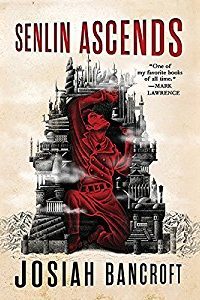Paul Di Filippo reviews Jennifer Marie Brissett
If Carol Emshwiller—oblique and delicate—had collaborated with Samuel Delany—straightforward and blunt—then the result might resemble Jennifer Brissett’s impressive debut novel, Elysium, a kind of fantasia on identity and character, what is superficial and what is central to both. Of course, the same result might obtain if a counterfactual Carl Emshwiller—transparent and shocking—had collaborated with Samantha Delany—mysterious and convoluted.
I think you’ll excuse my changing the genders of Delany and Emshwiller, and swapping around their perceived writerly qualities, when you learn the nature of Brissett’s tale. And after all, aren’t my initial assignments of style misleading or incomplete, not totally elucidating of the core identity of each writer? For if Emshwiller can be oblique and delicate in her work, so can Delany be inarguably seen as exhibiting those traits. And likewise, if Delany is sometimes straightforward and blunt, so is Emshwiller. Each famous author is not reducible to a subset of their whole selves. And that is rather what Elysium is all about: figuring out what is essential under pressure.
We open in what appears to be a current-day setting. A woman named Adrianne maneuvers through her lovingly elucidated city (Brissett exhibits great affection for the external world, and limns it splendidly). She misses a lunch date with a friend named Helen, then returns to her home and her partner, a man named Antoine. We see that there is an emotional strain between the two. End of chapter. Oh, yes, the events have been interspersed by computer diagnostics from some unknown AI-like entity.
Now cut to Chapter 2. Suddenly, Adrianne is Adrian, male lover of a (terminally?) ill man named Antoine. Chapter 3 finds the return of Adrianne, with “Antoinette” dead, and Helen showing up to console. The spastic computer monologue continues to erupt at intervals. In Chapter 4, the weirdness begins to really blossom: we are inhabiting a North America colonized by the Roman Empire, technologically advanced. Adrianne is now a Vestal Virgin. Throughout all these iterations and transfigurations, certain talismans remain: a head injury, the intimate connection between Adrian/Adrianne and Antoine/Antoinette. And narrative progress occurs, in spiraling, convoluted steps, drawing us deeper into this shattered universe, until we reach what seems to be the foundational stratum.
Not to spoil Brissett’s secrets, but we eventually discover that Earth has undergone a cataclysm, and that Adrian played a central role in fighting off the apocalypse. As a result of the measures taken, he has been trapped in this whirlwind of identity changes. Is there a possible end, or must he cycle continuously?
Brissett handles this not uncommon SF trope as if it were freshly minted. Her subtle morphings of identity and circumstance among her deeply felt characters serve to make us ponder, as I said earlier, what make up the core constituents of self and personality, and what is superficial. Her crabwise plotting is a bold and successful counterpoint to more linear narratives. And while her treatment of the theme is clear-eyed and personal, she also harks to many ancestors. I get whiffs of the film Dark City, John Crowley’s Engine Summer, and Harlan Ellison’s “I Have No Mouth, and I Must Scream.” Although Brissett’s AI is not malevolent—her global computer is instantiated in a manner reminiscent of the planetary mind in Karl Schroeder’s Ventus—the same sense of entrapment in secondary realities obtains. I also sense a small homage in Brissett’s concept of a bodily transformative mist to a similar device employed by the Inhumans in the Marvel Comics universe. And a pair of metal wings with killer blades also brings to mind the occasional transformation of the X-Man Angel into such a lethally equipped being.
Brissett’s vision of a blasted future for humanity—with scared and scarred survivors living forever immured underground, and where the tainted surface world, inhabited by cruel aliens, is ironically dubbed Elysium—is not a vision conducive to jolly vibes. But her counterbalancing assertions that love is stronger than death, and that something essential at the heart of every person will survive the kaleidoscopic whirl of the Great Wheel of avatars, both induce hope and pride at the capacities of our species.








